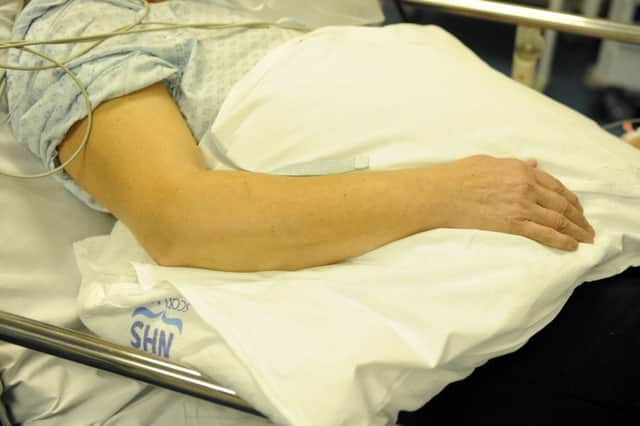Patching up the end-of-life problem


More than half of all deaths in Scotland take place in a hospital, but many of those patients aren’t receiving the specialist care they desperately need. It’s been reported by the Economist Intelligence Unit that UK healthcare ranks best in the world for end of life care, but there are still big gaps when it comes to hospital services.
Patients with the most complex needs are usually in hospital. One quarter of all admissions to an acute hospital have some palliative care needs and one third of all hospital beds are occupied by patients in their last year of life. That’s a huge number of patients who have advanced illness and pain, or complicated symptoms.
Advertisement
Hide AdAdvertisement
Hide AdOnly 5 per cent of Scots die in hospices and the quality of care is excellent. We need to take lessons we have learned from hospice care into hospital settings.
It is vital to acknowledge that a hospital is not a big hospice. In a busy hospital with conflicting pressures and so many possible treatments, it takes extensive training and skill to recognise when a patient is dying, to ensure they are comfortable and free of pain in their final days.
A new charity, PATCH, promotes the provision of end of life care in Scottish hospitals. It is the first charity to focus on supporting and identifying ways to deliver 24/7 specialist end of life care for hospital patients. It does this by funding hospitals and key staff to provide resources such as dedicated beds, advisory services and research.
The charity was inspired by the model of care in the Acute Palliative Care Unit in Ninewells Hospital, Dundee. Very few other hospitals in Scotland have acute palliative care beds but they include Dumfries Royal Infirmary, Queen Margaret Hospital in Dunfermline and the Royal Alexandra Hospital in Paisley.
The Scottish Government is developing a new framework for palliative care, supported with £3.5 million of funding over the next four years. It’s time for hospitals, government and patients to make high quality hospital palliative care a priority.
• Dr Pamela Levack is medical director of PATCH,www.patchscotland.com
SEE ALSO